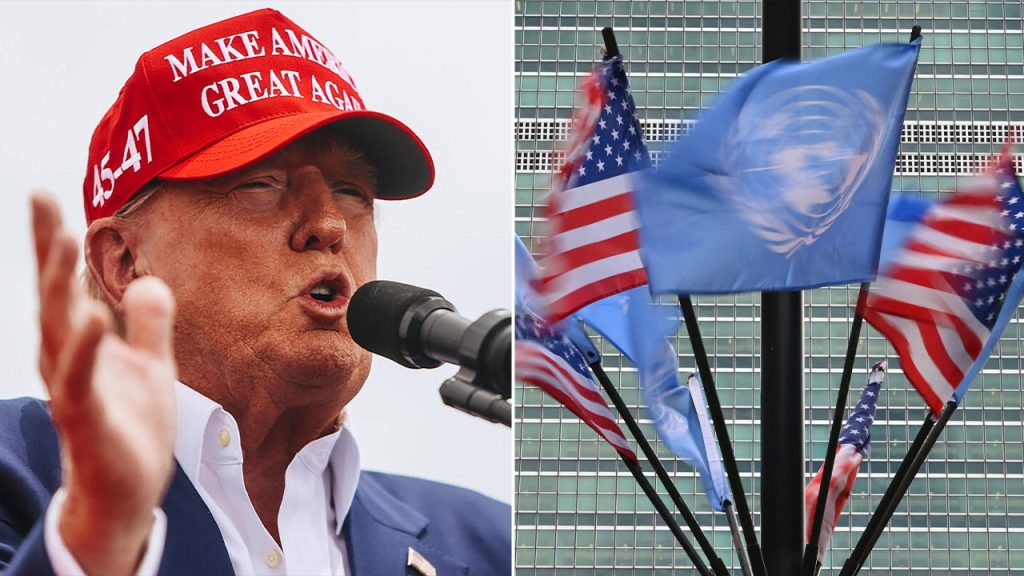A recent undercover video of a United Nations legal affairs employee expressing concern over a potential second term for President Trump has brought attention to Trump’s tough stance on the U.N.’s scandal-plagued agencies. The Trump administration was known for being aggressive against U.N. corruption, anti-Americanism, and antisemitism, which led to decisions such as stopping funding for the United Nations Relief and Works Agency for Palestine Refugees in the Near East (UNRWA). Trump also withdrew from various U.N. bodies such as the Human Rights Council, the World Health Organization, UNESCO, and the Paris climate agreement, citing concerns over anti-Israel bias and the need for fundamental reform.
The U.S. State Department spokesperson for Trump stated that the decision to withdraw from organizations like UNESCO was due to mounting arrears, the need for reform, and anti-Israel bias within the organization. After Biden took office, he quickly rejoined the U.N. bodies and agreements that Trump had walked away from during his term, but later suspended funds for UNRWA after its role in a Hamas terrorist attack was revealed. Former Trump U.N. Ambassador Nikki Haley warned against rejoining the Human Rights Council, citing influences from communist totalitarian regimes like China and Cuba. Additionally, a senior Republican Congressional staffer working on international affairs indicated that many of the policies pursued by Trump during his first term may be re-implemented in a second term, including withdrawing from anti-American and antisemitic organizations within the U.N.
The U.N. Secretary General’s spokesperson, Stéphane Dujarric, downplayed the comments made by the junior U.N. staffer in the undercover video, stating that the remarks were made in a private setting without the individual’s awareness and did not represent the official position of the organization. Anne Bayefsky, president of Human Rights Voices, criticized the U.N. for veering away from its original purpose and threatening American fundamental rights and freedoms, particularly with its biases against America and Israel. Bayefsky highlighted the U.N.’s preference for Democrats, including Obama-Harris-Biden’s involvement in decisions such as joining the Iran deal, supporting UNRWA, and condemning Israel through U.N. resolutions that did not address Hamas.
Upcoming events, such as the annual General Assembly debate at the United Nations, will provide a platform for world leaders, including despotic regimes, to address the international community. The U.N.’s relationship with the U.S., particularly under different administrations, reflects a divide in policies concerning human rights, antisemitism, and American interests. The possibility of a return to a Trump administration could mean a reversal of current U.S. involvement with anti-American and antisemitic organizations within the U.N. While the U.N. attempts to distance itself from the comments made by its junior staffer, criticisms persist regarding the organization’s biases and failures to uphold its original purpose.
In light of recent revelations and discussions surrounding the U.N.’s stance on global issues and relations with the U.S., the role of international organizations in promoting human rights, combating corruption, and addressing geopolitical challenges comes into question. The Trump administration’s approach of prioritizing American interests, opposing anti-Israel biases, and challenging corrupt practices within the U.N. contrasted with the Biden administration’s decisions to rejoin international bodies and agreements. As the U.N. prepares to host world leaders at the upcoming General Assembly debate, the dynamics of U.S.-U.N. relations and the influence of different administrations on global affairs remain significant topics for consideration and scrutiny.


